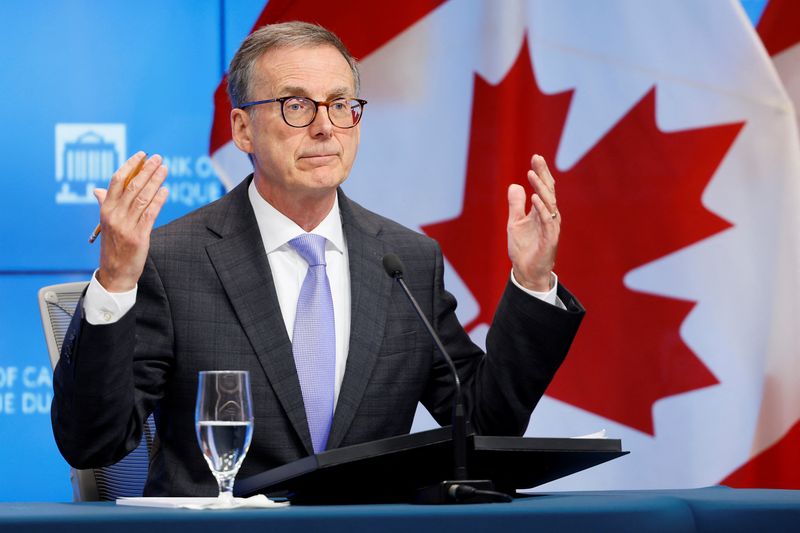The Bank of Canada’s governing council was split on the outlook for inflation ahead of its Sept 4 decision to cut rates for the third time in a row, minutes published on Wednesday showed.
The BoC said on Sept 4 that it was juggling the impact of two opposing forces on inflation – the persistently high cost of shelter and services on one hand and a weakening economy and rising unemployment on the other.
“Some members took the view that the risks were balanced, with strength in shelter and services price inflation offsetting the downward pressure from excess supply,” it said. “Some had become more concerned with the downside risks to inflation, particularly if the economy and labor market weakened further.”
The bank started trimming rates in June after consumer prices showed consistent decline and has reduced borrowing costs three times by a cumulative 75 basis points to 4.25%.
Data released on Tuesday showed the annual inflation rate in August fell to the central bank’s 2% target, its lowest point since February 2021, sparking hopes of a jumbo cut at the bank’s next meeting on Oct. 23.
Money markets see an almost 46% chance of a 50 basis point rate cut in October.
Governing council members felt that if the economy and labor market failed to pick up as anticipated due to lower borrowing costs, it might be appropriate to lower the policy rate more quickly, the minutes said.
With inflation approaching target, the bank needed to guard against the downside risks to inflation stemming from weakness in economic activity, they said.
Growth stalled in June and is likely to stay flat in July, with economists now predicting annualized third quarter GDP would likely be half of the BoC’s forecast of 2.8%.

The economic woes have been further exacerbated by a rising unemployment level that hit 6.6% in August, up from 5.0% in January 2023.
The governing council said per capita consumption could take longer to rebound and worsen further if businesses postponed hiring due to soft demand.
This could weaken inflation more than expected, it said.
